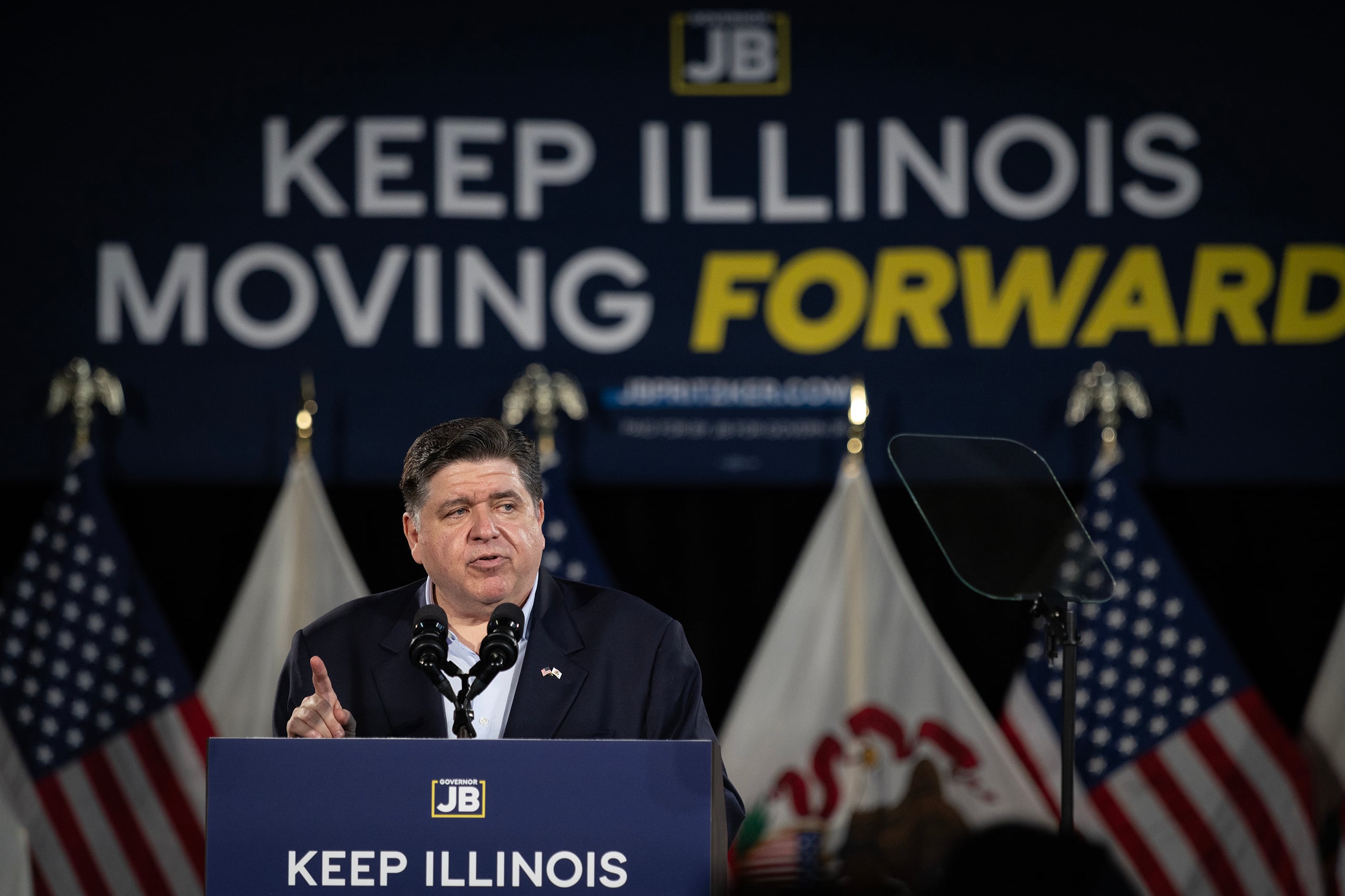Sign up for Chalkbeat Chicago’s free daily newsletter to keep up with the latest news on Chicago Public Schools.
Illinois Gov. JB Pritzker, along with 16 other Democratic governors, sent a letter Thursday to federal education and budget officials demanding the Trump administration release almost $7 billion in funding for K-12 schools that was expected to go out by July 1.
The billions of dollars was approved by Congress in March as a part of a continuing budget resolution. However, the Trump administration told state education officials on June 30 it was halting funding meant to be released the next day, pending further review of how funds are being spent.
The White House Office of Management and Budget told Chalkbeat in early July that initial findings show funds were being used to “subsidize a radical leftwing agenda.”
In a press release announcing the letter sent by the group of governors, Pritzker said, “The Trump administration is not only openly flouting the law, they are abandoning their responsibility to our students.”
The letter, sent to U.S. Education Secretary Linda McMahon and Office of Management and Budget Director Russell Vought, called the Trump administration’s freeze in funding “unacceptable.” In addition to Illinois, the 16 other states whose governors signed onto the letter were Arizona, California, Colorado, Connecticut, Delaware, Kansas, Kentucky, Massachusetts, Michigan, Minnesota, Maine, New Mexico, Oregon, Rhode Island, Washington, and Wisconsin.
The funding freeze “disrupts school operations, undermines student services, and violates the Department’s obligation to administer funding in a timely and responsible manner,” said the letter.
New Jersey Gov. Phil Murphy sent a similar letter to McMahon and Vought last week, urging the federal officials to distribute the money to prevent delays in “critical services” for schools.
Several states are also suing the federal government over the halting of the education funds. Twenty-four states, including Illinois, and the District of Columbia filed a lawsuit earlier this week claiming that withholding these funds violates the Constitution and federal laws and calling for the money to be released immediately.
Illinois was expecting to receive about $218.7 million in federal funding for services supporting English learners, migrant education, teacher professional development, student enrichment programs, and after-school programs, according to a spokesperson for the Illinois State Board of Education earlier this month.
The federal funding now frozen included $160 million for Michigan, $70 million for Colorado, $118 million for Tennessee, $230 million for Pennsylvania, and $107 million for Indiana.
Around the country, state education officials have also called out the Trump administration for withholding funding. Earlier this month, Illinois State Superintendent Tony Sanders called the move “deeply disruptive.”
Becky Vevea contributed to this report.
Samantha Smylie is the state education reporter for Chalkbeat Chicago covering school districts across the state, legislation, special education and the state board of education. Contact Samantha at ssmylie@chalkbeat.org.






